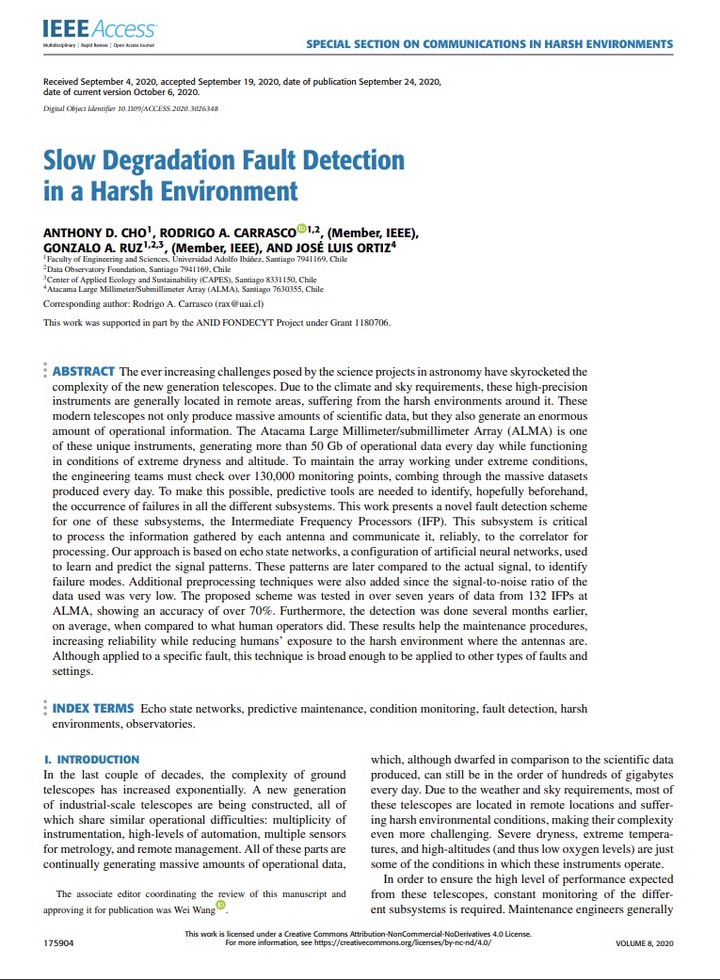
Abstract
The ever increasing challenges posed by the science projects in astronomy have skyrocketed the complexity of the new generation telescopes. Due to the climate and sky requirements, these high-precision instruments are generally located in remote areas, suffering from the harsh environments around it. These modern telescopes not only produce massive amounts of scientific data, but they also generate an enormous amount of operational information. The Atacama Large Millimeter/submillimeter Array (ALMA) is one of these unique instruments, generating more than 50 Gb of operational data every day while functioning in conditions of extreme dryness and altitude. To maintain the array working under extreme conditions, the engineering teams must check over 130,000 monitoring points, combing through the massive datasets produced every day. To make this possible, predictive tools are needed to identify, hopefully beforehand, the occurrence of failures in all the different subsystems. This work presents a novel fault detection scheme for one of these subsystems, the Intermediate Frequency Processors (IFP). This subsystem is critical to process the information gathered by each antenna and communicate it, reliably, to the correlator for processing. Our approach is based on echo state networks, a configuration of artificial neural networks, used to learn and predict the signal patterns. These patterns are later compared to the actual signal, to identify failure modes. Additional preprocessing techniques were also added since the signal-to-noise ratio of the data used was very low. The proposed scheme was tested in over seven years of data from 132 IFPs at ALMA, showing an accuracy of over 70%. Furthermore, the detection was done several months earlier, on average, when compared to what human operators did. These results help the maintenance procedures, increasing reliability while reducing humans’ exposure to the harsh environment where the antennas are. Although applied to a specific fault, this technique is broad enough to be applied to other types of faults and settings.